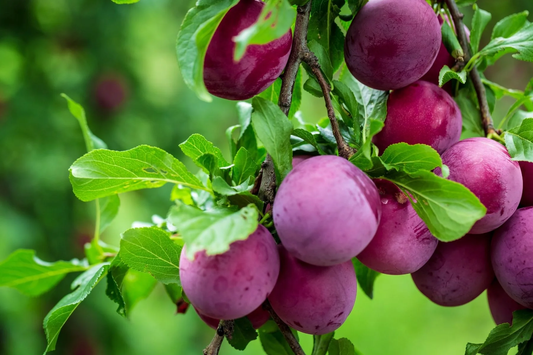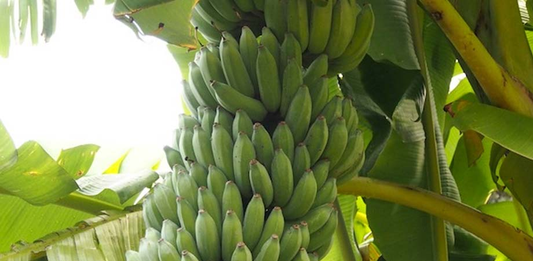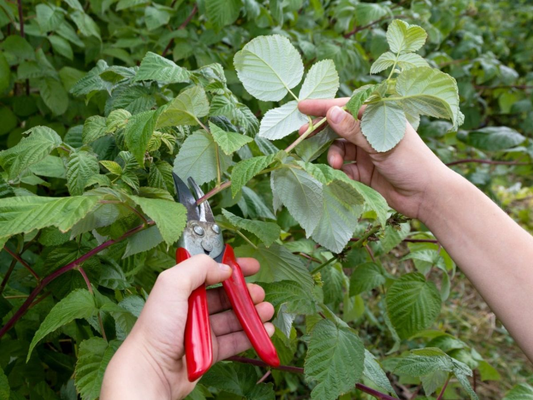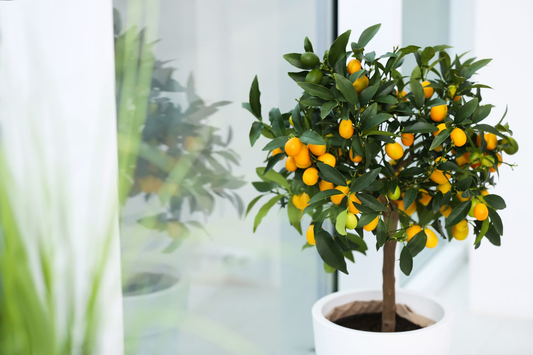Organic Seeds for Home Gardening
Share
- 1. Introduction
- 2. What Are Organic Seeds?
- 3. Benefits of Using Organic Seeds in Home Gardening
- 4. How to Choose the Right Organic Seeds for Your Garden
- 5. Popular Types of Organic Seeds for Home Gardening
- 6. Steps to Start Your Home Garden with Organic Seeds
- 7. Challenges in Using Organic Seeds and How to Overcome Them
- 8. Where to Buy Organic Seeds
- 9. Tips for Saving and Storing Organic Seeds
- 10. Frequently Asked Questions
1. Introduction
Home gardening has seen a remarkable surge in popularity in recent years, driven by a collective desire for healthier lifestyles, environmental sustainability, and a deeper connection to nature. At the heart of this movement is the use of organic seeds, which offer gardeners a chance to grow plants that are not only pesticide-free but also better for the planet and future generations.
But what exactly are organic seeds, and why are they so significant for home gardening? This section will provide an in-depth exploration of their importance and highlight why they are a superior choice over conventional seeds.
1.1 What Are Organic Seeds?
- Organic seeds are harvested from plants grown without the use of:
- Synthetic fertilizers
- Pesticides
- Genetically modified organisms (GMOs)
- They are certified by regulatory bodies such as:
- USDA Organic (United States)
- EU Organic Certification (Europe)
- Other national organic standards
- These seeds are cultivated in conditions that promote biodiversity and soil health.
1.2 Why Are Organic Seeds Gaining Popularity?
-
Health Benefits:
- Produce grown from organic seeds is free from harmful chemical residues.
- Organic crops often contain higher levels of essential nutrients.
-
Environmental Benefits:
- Supports sustainable farming practices.
- Preserves soil fertility by avoiding synthetic inputs.
- Encourages natural pollinators such as bees and butterflies.
-
Sustainability:
- Reduces the environmental impact of conventional agriculture.
- Helps combat climate change by promoting organic carbon sequestration in the soil.
1.3 Why Choose Organic Seeds Over Conventional Seeds?
| Aspect | Organic Seeds | Conventional Seeds |
|---|---|---|
| Pesticide Use | No synthetic pesticides | May involve heavy pesticide use |
| Environmental Impact | Promotes biodiversity and healthy ecosystems | May harm soil health and reduce biodiversity |
| Pollinator Safety | Safe for bees and other pollinators | May harm pollinators through pesticide exposure |
| Genetic Modification | Non-GMO certified | May include genetically modified seeds |
In conclusion, organic seeds play a pivotal role in creating a sustainable, healthy, and thriving home garden. They not only empower gardeners to grow chemical-free produce but also support the planet by reducing environmental harm and promoting biodiversity. Whether you're a seasoned gardener or just starting your journey, organic seeds are a valuable choice for achieving your gardening goals.

2. What Are Organic Seeds?
Organic seeds are the foundation of organic gardening, offering plants that are free from synthetic chemicals and genetically modified organisms (GMOs). These seeds are harvested from plants grown using natural methods, ensuring they adhere to strict environmental and health standards. This section dives deeper into their definition, certification process, and key differences from other types of seeds.
2.1 Definition of Organic Seeds
- Organic seeds are derived from plants cultivated:
- Without synthetic pesticides, herbicides, or fertilizers.
- Using practices that enhance soil fertility and biodiversity.
- These seeds are non-GMO, meaning they are not genetically engineered or modified in laboratories.
2.2 Certification Process
- To be labeled as organic, seeds must meet the standards of regulatory bodies, including:
- USDA Organic: Enforced by the United States Department of Agriculture.
- EU Organic Certification: Overseen by the European Union.
- Other regional certifications: Depending on the country.
- Farmers producing organic seeds must:
- Use organic soil amendments and natural pest control methods.
- Follow crop rotation and cover cropping techniques to maintain soil health.
2.3 Differences Between Organic, Heirloom, and Hybrid Seeds
| Type | Definition | Key Features |
|---|---|---|
| Organic Seeds | Seeds produced without synthetic inputs or genetic modification. |
|
| Heirloom Seeds | Seeds from plant varieties that have been passed down for generations. |
|
| Hybrid Seeds | Seeds created by crossbreeding two different plant varieties. |
|
2.4 Importance of Non-GMO in Organic Seeds
- Non-GMO seeds ensure:
- Plants are grown naturally without genetic engineering.
- Preservation of biodiversity and traditional plant varieties.
- Organic certification mandates the use of non-GMO seeds, making them a safe choice for gardeners.
- Non-GMO seeds contribute to a healthier ecosystem by supporting natural pollinators and reducing dependency on synthetic chemicals.
Choosing organic seeds is more than just a gardening decision; it is a commitment to health, sustainability, and the preservation of nature. Understanding their unique benefits and certifications helps home gardeners make informed and responsible choices.
3. Benefits of Using Organic Seeds in Home Gardening
Organic seeds offer a multitude of benefits for home gardeners, ranging from improved health outcomes to environmental sustainability. By choosing organic seeds, you not only grow healthier crops but also contribute to ethical farming practices and a greener planet. Below, we explore the health, environmental, and ethical advantages of using organic seeds in home gardening.
3.1 Health Benefits
-
Pesticide-Free Produce:
- Organic seeds produce crops that are grown without synthetic pesticides or herbicides.
- This ensures the food you grow is free from harmful chemical residues.
-
Nutrient-Rich Crops:
- Studies suggest that organically grown plants may contain higher levels of essential nutrients, such as vitamins and antioxidants.
- Organic farming practices focus on soil health, which directly impacts the nutritional quality of crops.
3.2 Environmental Benefits
-
Sustainability and Soil Health:
- Organic seeds are grown using practices that promote soil fertility, such as crop rotation and the use of compost.
- These methods preserve the integrity of soil ecosystems and prevent erosion.
-
Reduced Carbon Footprint:
- The production of organic seeds relies on natural inputs, which reduces energy consumption compared to conventional seed production.
- Organic farming methods help sequester carbon in the soil, mitigating climate change.
3.3 Ethical Reasons
-
Supporting Organic Farming Practices:
- By purchasing organic seeds, you support farmers who adhere to sustainable and eco-friendly agricultural methods.
- This encourages the expansion of organic farming worldwide.
-
Promoting Biodiversity:
- Organic seed farming fosters a diverse range of plant varieties, which are crucial for maintaining healthy ecosystems.
- Diverse plant species also attract beneficial pollinators and wildlife.

4. How to Choose the Right Organic Seeds for Your Garden
Choosing the right organic seeds for your garden is crucial to ensure a successful and enjoyable gardening experience. Your selection should align with your gardening space, goals, and the specific requirements of the plants. Below, we provide a detailed guide to help you make informed decisions when selecting organic seeds.
4.1 Assessing Your Gardening Space
-
Container Gardening vs. Backyard Gardening:
- For small spaces or urban settings, opt for organic seeds suitable for container-friendly plants, such as herbs, lettuce, and cherry tomatoes.
- If you have a backyard garden, consider seeds for larger plants like squash, corn, or fruiting vines.
-
Consideration of Sunlight, Soil, and Climate:
- Ensure your gardening space receives adequate sunlight; most plants need 6–8 hours daily.
- Test your soil's pH and fertility to choose seeds that thrive in your soil conditions.
- Choose seeds adapted to your local climate, whether it's cool, warm, or temperate.
4.2 Determining Your Gardening Goals
-
Growing for Aesthetics, Food, or Pollinator Support:
- For aesthetics, consider flowering plants like marigolds, zinnias, or sunflowers.
- If you're growing for food, prioritize organic vegetable and fruit seeds.
- For pollinator support, select seeds for plants like lavender, milkweed, or coneflowers.
-
Seasonal Preferences:
- Warm-Season Crops: Tomatoes, cucumbers, and peppers thrive in summer conditions.
- Cool-Season Crops: Spinach, kale, and carrots grow best in spring and fall.
4.3 Reading Seed Packets
-
Germination Rates:
- Look for a germination rate of 85% or higher for reliable plant growth.
-
Planting Depth and Spacing:
- Seed packets specify the correct depth to sow seeds for optimal germination.
- Follow spacing guidelines to prevent overcrowding and ensure healthy growth.
-
Harvest Timeline and Tips:
- Check the "days to maturity" information to plan your harvest.
- Some packets include care tips, such as watering frequency and pruning suggestions.

5. Popular Types of Organic Seeds for Home Gardening
Organic seeds come in a variety of types, suitable for vegetables, herbs, flowers, and fruits. These seeds allow home gardeners to grow diverse and healthy crops. Below, we explore some of the most popular organic seed varieties for home gardening and their unique benefits.
5.1 Vegetables
-
Tomatoes:
- Known for their versatility in salads, sauces, and sandwiches.
- Varieties include cherry tomatoes, Roma, and heirlooms.
-
Cucumbers:
- Great for fresh eating or pickling.
- Easy to grow and thrive in warm weather.
-
Peppers:
- Available in sweet and spicy varieties like bell peppers and jalapeños.
-
Spinach:
- A nutrient-rich leafy green that grows well in cooler seasons.
-
Carrots:
- Perfect for snacking, roasting, or soups, and come in various colors.
5.2 Herbs
-
Basil:
- Essential for Italian and Mediterranean dishes.
-
Cilantro:
- Commonly used in Mexican and Asian cuisines.
-
Parsley:
- Ideal for garnishes and adding freshness to meals.
-
Thyme:
- Popular in seasoning blends and roasted dishes.
5.3 Flowers
-
Sunflowers:
- Attract pollinators and add vibrant beauty to your garden.
-
Marigolds:
- Known for pest-repellent properties and bright colors.
-
Zinnias:
- Provide long-lasting blooms and are easy to grow.
5.4 Fruits
-
Strawberries:
- Great for container gardening and perfect for desserts or smoothies.
-
Melons:
- Require more space but reward gardeners with sweet, juicy fruits.
5.5 Comparison of Organic Seed Varieties
| Seed Type | Ideal Growing Season | Growth Time | Difficulty Level | Companion Plants | Key Benefits |
|---|---|---|---|---|---|
| Tomatoes | Spring/Summer | 60-80 days | Medium | Basil, Marigold | High yield, versatile |
| Basil | Spring/Summer | 50-70 days | Easy | Tomatoes, Peppers | Enhances flavor in food |
| Spinach | Fall/Winter | 40-50 days | Easy | Strawberries, Peas | Nutrient-rich greens |
| Sunflowers | Spring/Summer | 70-90 days | Easy | Corn, Beans | Attracts pollinators |
By exploring these seed varieties, you can find the perfect organic seeds to match your gardening needs, whether you're aiming for a bountiful harvest, vibrant blooms, or aromatic herbs.

6. Steps to Start Your Home Garden with Organic Seeds
Starting a home garden with organic seeds is a rewarding journey that involves thoughtful planning and care. Follow these essential steps to ensure a successful organic gardening experience.
6.1. Preparing the Soil
-
Test Soil pH and Nutrient Levels:
- Use a soil testing kit to determine pH and nutrient deficiencies.
- Ideal pH for most plants ranges between 6.0 and 7.0.
-
Add Organic Matter:
- Incorporate compost, well-rotted manure, or organic fertilizers into the soil.
- Improves soil structure, drainage, and nutrient content.
6.2. Choosing the Right Containers or Garden Beds
-
Containers:
- Use pots or containers with drainage holes for herbs and small plants.
- Opt for 10-15 gallon containers for larger plants like tomatoes.
-
Raised Garden Beds:
- Ideal for improving soil quality and controlling drainage.
- Great for growing vegetables, flowers, and fruits in a small space.
-
Direct Soil Planting:
- Prepare garden beds by tilling and removing weeds.
- Best suited for plants requiring deeper roots, like carrots and melons.
6.3. Sowing the Seeds
-
Direct Sowing:
- Plant seeds directly into the soil or containers, following depth and spacing instructions.
- Common for root vegetables like carrots and radishes.
-
Seed Starting Indoors:
- Use seed trays or biodegradable pots filled with organic seed-starting mix.
- Transplant seedlings outdoors when they develop 2-3 true leaves.
-
Techniques to Improve Germination:
- Soak hard seeds (e.g., beans) in water overnight before planting.
- Provide consistent moisture and maintain proper temperature for sprouting.
6.4. Watering and Sunlight
-
Watering:
- Keep the soil evenly moist but not waterlogged.
- Water early in the morning to reduce evaporation and prevent fungal issues.
-
Sunlight:
- Place sun-loving plants like tomatoes and peppers in areas with 6-8 hours of sunlight.
- Shade-tolerant plants, such as spinach, can thrive with partial sunlight.
6.5. Monitoring Growth
-
Common Issues to Watch For:
- Pests like aphids, whiteflies, or caterpillars.
- Diseases such as powdery mildew or root rot.
- Poor germination caused by inadequate moisture or incorrect planting depth.
-
Organic Pest Control Methods:
- Companion Planting: Grow marigolds near vegetables to repel pests.
- Neem Oil: Apply neem oil spray to deter insects and control fungal issues.
- Handpicking: Remove visible pests manually and dispose of them safely.
7. Challenges in Using Organic Seeds and How to Overcome Them
While organic seeds offer numerous benefits, they come with unique challenges that home gardeners need to address. Below are common difficulties faced when using organic seeds, along with practical solutions to overcome them.
Challenge 1: Limited Availability
- Problem: Organic seeds are often harder to find in local stores compared to conventional seeds.
-
Solutions:
- Shop from trusted online organic seed retailers that specialize in high-quality, certified organic seeds.
- Join gardening communities to exchange organic seeds with fellow gardeners.
- Consider local farmers' markets or seed swaps for unique, region-specific organic seeds.
Challenge 2: Shorter Shelf Life
- Problem: Organic seeds often have a shorter shelf life due to the absence of chemical treatments for preservation.
-
Solutions:
- Store seeds in a cool, dry place, such as an airtight container in the refrigerator.
- Label seed packets with the purchase or harvest date to keep track of usability.
- Use silica gel packets or rice in storage containers to absorb excess moisture.
Challenge 3: Higher Cost
- Problem: Organic seeds are generally more expensive than conventional or hybrid seeds.
-
Solutions:
- Save seeds from your organic plants for the next growing season.
- Focus on purchasing seeds for plants with high yield and multiple harvest cycles, such as tomatoes or herbs.
- Take advantage of discounts and bulk seed purchase options from online retailers.
Challenge 4: Slower Germination
- Problem: Organic seeds may take longer to germinate due to natural coatings or untreated surfaces.
-
Solutions:
- Pre-soak seeds in water for 6-12 hours before planting to soften seed coatings and promote faster germination.
- Maintain consistent moisture in the soil or seed-starting mix during germination.
- Provide optimal growing conditions, such as proper temperature and light exposure, for each seed type.

8. Where to Buy Organic Seeds
Finding a reliable source for organic seeds is essential to ensure quality and successful growth in your home garden. Below are some of the best places to purchase organic seeds, including trusted online stores, local options, and community-based alternatives.
8.1. Trusted Online Stores
- Seed Savers Exchange: Offers a wide variety of heirloom and organic seeds, along with resources for seed saving.
- Baker Creek Heirloom Seeds: Renowned for its collection of rare and exotic organic seeds.
- Johnny’s Selected Seeds: A reliable source for certified organic seeds with detailed planting instructions.
8.2. Local Nurseries and Garden Centers
- Visit your local nursery or garden center to find region-specific organic seeds.
- Benefit from personalized advice and recommendations from gardening experts in your area.
8.3. Farmers’ Markets and Community Seed Swaps
- Farmers’ Markets: Many local farmers sell organic seeds alongside fresh produce, offering a chance to support sustainable farming practices.
- Seed Swaps: Join community gardening events or seed exchange programs to trade seeds with other gardeners and discover unique varieties.
8.4. Comparison of Online Stores
| Store Name | Specialty | Key Features |
|---|---|---|
| Seed Savers Exchange | Heirloom and organic seeds | Focus on seed preservation, wide variety, educational resources |
| Baker Creek Heirloom Seeds | Rare and exotic seeds | Extensive catalog, free seed catalogs, worldwide shipping |
| Johnny’s Selected Seeds | Certified organic seeds | Detailed growing guides, excellent for beginner gardeners |
These sources offer a wide selection of high-quality organic seeds, ensuring you have the best options for your home garden. Whether you prefer to shop online or explore local options, finding the right seeds has never been easier.
9. Tips for Saving and Storing Organic Seeds
Properly saving and storing organic seeds ensures they remain viable for future planting. Follow these tips to successfully harvest, clean, and store seeds for long-term use in your garden.
9.1. Harvesting Seeds
- Collect seeds from fully matured plants: Wait until your plants have reached full maturity, allowing seeds to ripen naturally on the plant.
- Timing: Harvest seeds when they are fully dried or at their peak ripeness to ensure maximum germination rates.
9.2. Drying and Cleaning
- Proper drying: After harvesting, lay the seeds out in a well-ventilated, dry area away from direct sunlight to prevent mold.
- Cleaning seeds: Remove any pulp or plant debris by gently washing the seeds, then allow them to dry completely before storage.
- Cleaning methods: Use fine mesh strainers or gentle brushing to clean the seeds without damaging them.
9.3. Storage
- Airtight containers: Store seeds in glass jars, envelopes, or vacuum-sealed bags to protect them from moisture and pests.
- Labeling: Always label containers with the seed variety, harvest date, and any specific growing instructions.
- Cool, dark storage: Store seeds in a cool, dark place, such as a basement or refrigerator, to extend their viability for several years.
10. Frequently Asked Questions
Here are answers to some common questions about organic seeds and their use in home gardening:
10.1. Are organic seeds more expensive than conventional seeds?
Yes, organic seeds often cost more due to the sustainable and chemical-free growing practices required. However, the long-term benefits, such as healthier plants, better flavor, and environmental advantages, often outweigh the initial cost. Additionally, by saving seeds for future seasons, you can reduce long-term expenses.
10.2. Can I use organic seeds for indoor gardening?
Absolutely! Many organic seeds are suitable for indoor gardening, especially herbs and small vegetables. Varieties like basil, parsley, spinach, and dwarf tomatoes thrive in indoor environments. Be sure to consider the light and space requirements of each plant to optimize growth indoors.
10.3. How do I ensure organic seeds remain viable for future use?
- Store seeds in airtight containers to protect them from moisture and pests.
- Keep the seeds in a cool, dry place, such as a basement or refrigerator, to extend their lifespan.
- Label containers with the seed variety and collection date for easy identification.
10.4. Are organic seeds resistant to pests and diseases?
Organic seeds are not inherently resistant to pests and diseases. However, plants grown from organic seeds are often more resilient due to the natural farming methods that encourage soil health and biodiversity. Additionally, organic gardeners tend to use natural pest control methods like companion planting, crop rotation, and organic pesticides.
10.5. What’s the difference between heirloom seeds and organic seeds?
- Heirloom seeds: These are traditional plant varieties that have been passed down through generations due to their reliable performance and unique characteristics.
- Organic seeds: These seeds are grown without synthetic chemicals, pesticides, or fertilizers. Organic farming methods emphasize sustainability and environmental health.
- Some seeds can be both organic and heirloom, combining the best of both worlds: natural growing methods and heritage plant varieties.
These answers should help clarify some common concerns and guide you toward a successful organic gardening experience!
Additional Resources
Best Plants for Outdoor Containers




